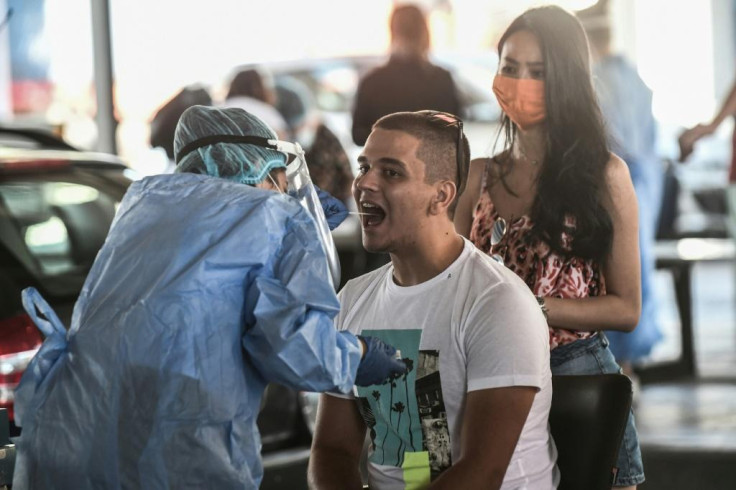Researchers develop disinfection system that can reportedly trap, kill coronavirus 'instantly'
The heat-based air filter is believed to prevent the spread of the coronavirus in air conditioned spaces.
Researchers and scientists across the globe are invested in the development of effective treatment to curb the ongoing coronavirus pandemic. As several countries are racing for COVID-19 vaccine trials, a team of researchers has developed a specialised air filter to "catch and kill" SARS-CoV-2, the virus that causes the deadly pandemic disease.
A team of scientists from the University of Houston, University of Texas, and Medistar Corporation, have designed a special disinfection system that claims to trap and kill the virus instantly. The unique nickel foam heated filter is the brainchild of Dr. Zhifeng Ren, director of the Texas Center of Superconductivity at the University of Houston, who collaborated with Monzer Hourani, CEO of Medistar, a Houston-based medical real estate development firm, and other researchers, according to a news release on Science Daily.
The testing of the air filter provides promising performance. During testing at the Galveston National Laboratory, it was reportedly found out that the disinfection system was able to kill 99.8 percent of the novel coronavirus in a single pass when heated up to 200 degrees centigrade. The machine heated air disinfection system is made up of commercial nickel foam and it is deemed significant in keeping a check on the spread of COVID-19 particularly in public places with air-conditioned areas.
"This filter could be useful in airports and in airplanes, in office buildings, schools and cruise ships to stop the spread of COVID-19," said Ren, MD Anderson Chair Professor of Physics at UH and co-corresponding author for the paper.
In addition, the company is looking for proposing a much smaller version of the disinfection system that is capable of purifying the air around an individual desk or working area. The disinfection system has been in the making for months. The work started soon after COVID-19 was declared a pandemic and started spreading rapidly in the USA.
As per the release, Medistar was motivated to develop "the concept of a virus-trapping air filter" and approached the Texas Center for Superconductivity at the University of Houston (TcSUH) on March 31. While researchers understand that air filtration systems may not be enough to prevent person-to-person transmission, they are aware of the urgency to develop such a system to control the spread of the virus particularly in air-conditioned spaces such as offices and airports. The motivation behind the development of this system is the knowledge that most of the viruses cannot tolerate temperatures exceeding 70 degrees centigrade. Therefore, they created a heat-based filter with high temperature.
"This novel biodefense indoor air protection technology offers the first-in-line prevention against environmentally mediated transmission of airborne SARS-CoV-2 and will be at the forefront of technologies available to combat the current pandemic and any future airborne biothreats in indoor environments," co-author of the paper Faisal H. Cheema said.
Dr. Garrett Peel of Medistar from the team has suggested phased roll-out of the device starting with high-priority venues where frontline workers are at most risk.
"It's basically a high-performance COVID-19 killer," Peel said in a statement according to Houston Chronicle. "This is safe and effective. We want to roll this out of Texas first and start deploying them in schools, nursing homes, " Peel said. "This unit could be deployed in 60 days."

The details about the air-filter system were published in journal Materials Today Physics.
© Copyright IBTimes 2025. All rights reserved.





















